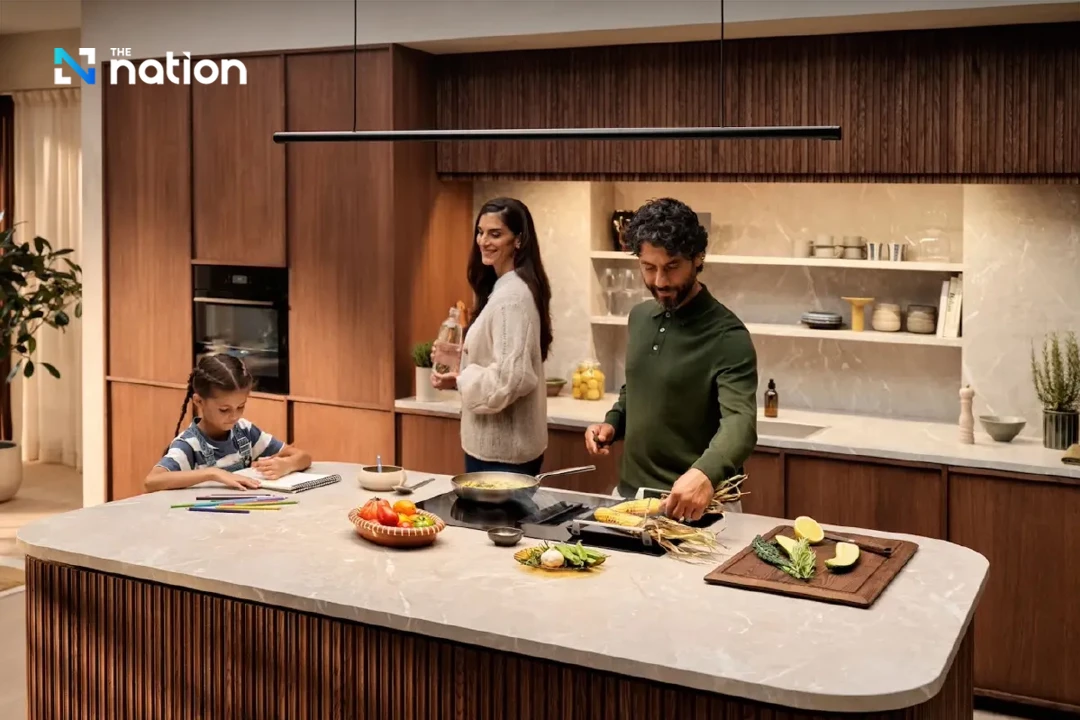
Smart Kitchens Invade Thai Homes: How AI Is transforming kitchens Into hubs for health, business, and future lifestyles
Technology is no longer confined to the office desk — it's making its way into our dining tables and home kitchens. A quiet but powerful trend is emerging, one that's not just luxurious, but also smart and sustainable. It goes by an increasingly familiar name: the Smart Kitchen.
The kitchen is no longer just a place to cook. It's evolving into a command centre for health and lifestyle, transforming the way Thai households experience cooking — making it easier, smarter, and safer. With the integration of AI, IoT, and automation into everyday appliances, the Smart Kitchen is quickly becoming a reality for many, not just a distant concept.
According to the Thailand Smart Home Market Outlook 2025–2031, by 2030, a large number of Thai households are expected to upgrade from traditional kitchens to smart ones. This shift is driven by the preferences of modern consumers who prioritise wellness, convenience, and technology.

A report from Statista reinforces this trend, forecasting the rise of a digital kitchen ecosystem. This includes smart devices that interact with smartphones — from scheduling a rice cooker via an app, to adjusting oven temperatures remotely from your car, or even having AI recommend recipes based on what's inside your fridge.
Imagine this:
You’re heading home in the evening. Fresh jasmine rice is ready, warm and perfectly cooked.Pork skewers marinated in milk are roasting to perfection, timed just for your arrival.All of it pre-programmed from your smartphone — before you even left the office.
Kitchen Appliance Brands Race to Develop Smart Items for a New Lifestyle
One of the key players pioneering this market is Electrolux, a global appliance brand that has been actively expanding its smart kitchen lineup. Notable innovations include:
Voice-controlled rice cookers: Cook restaurant-quality rice with simple voice commands and scheduling features.

AI ovens and air fryers: Connected via mobile apps, these devices auto-adjust recipes and use Sensor Cook technology for precision.
Smart refrigerators: Monitor ingredients, suggest recipes, and track expiry dates.
Hob2Hood electric stoves: Automatically adjust ventilation based on cooking heat.
Touchless faucets: Enhance kitchen hygiene, especially in the post-Covid era.
These aren’t just high-tech toys — they represent a reengineering of home life and open up new opportunities for consumers and appliance brands alike.
Beyond Convenience: New Opportunities for Food Creators and Future Food Businesses
Smart Kitchens also unlock new potential for food content creators on platforms like TikTok, YouTube, and Instagram. With smarter tools, they can streamline recipe demos, prep ingredients efficiently, and create professional-looking content effortlessly.
From a business standpoint, Smart Kitchens present golden opportunities for delivery restaurants, ghost kitchens, and meal planning services. By integrating home kitchens with popular menu items through cloud-based recipes or AI-driven meal suggestions, brands can personalise offerings and enhance customer engagement like never before.



